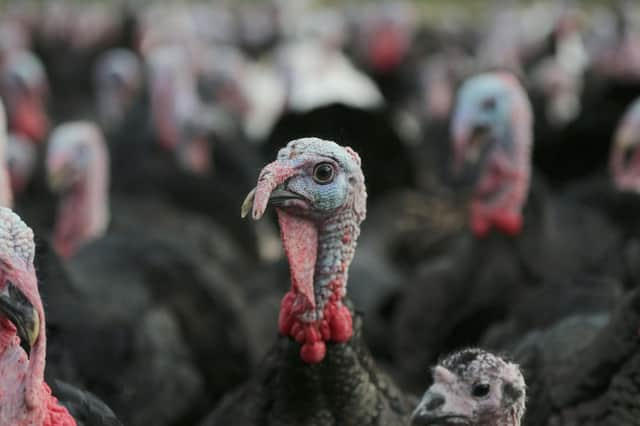Human case of bird flu confirmed in UK follows outbreaks at farms in Yorkshire


The risk to the wider public continues to be very low, the UKHSA said, but urged people not touch sick or dead birds.
In a statement, the health protection body said: "Bird to human transmission of avian flu is very rare and has only occurred a small number of times in the UK previously.
Advertisement
Hide AdAdvertisement
Hide Ad"The person acquired the infection from very close, regular contact with a large number of infected birds, which they kept in and around their home over a prolonged period of time.
"All contacts of the individual, including those who visited the premises, have been traced and there is no evidence of onward spread of the infection to anyone else. The individual is currently well and self-isolating."
The UK has recently seen a large number of bird flu outbreaks among animals, with the UK's Chief Veterinary Officer, Christine Middlemiss, issuing warnings to bird owners over hygiene.
There are currently 64 cases of avian influenza H5N1 in both commercial farms and backyard flocks in England.
Advertisement
Hide AdAdvertisement
Hide AdThree outbreaks were confirmed in North Yorkshire in December. In November there were five confirmed outbreaks near Thirsk, mostly at commercial poultry farms, and two near Leeming Bar.
The case was detected after the Animal and Plant health Agency (APHA) identified an outbreak of the H5N1 strain of bird flu in a flock of birds. The infected birds have all been culled.
As a precaution, the UKHSA swabbed the person involved and detected low levels of flu.
Further lab analysis showed that the virus was the 'H5' type found in birds.
Advertisement
Hide AdAdvertisement
Hide AdThe UKHSA said that, at this point, it has not been possible to confirm that this is a H5N1 infection (the strain that is currently circulating in birds in the UK).
But the UKHSA has notified the World Health Organisation (WHO) as a precaution.
It said this is the first human case of this strain in the UK, although there have been cases elsewhere globally.
Professor Isabel Oliver, chief scientific officer at the UKHSA, said: "While the risk of avian flu to the general public is very low, we know that some strains do have the potential to spread to humans and that's why we have robust systems in place to detect these early and take action.
Advertisement
Hide AdAdvertisement
Hide Ad"Currently there is no evidence that this strain detected in the UK can spread from person to person, but we know that viruses evolve all the time and we continue to monitor the situation closely.
"We have followed up all of this individual's contacts and have not identified any onward spread."
Owners of birds are being reminded of the importance of stringent cleanliness.
Professor Mike Tildesley, from the University of Warwick, said: "This is clearly going to be big news but the key thing is that human infections with H5N1 are really rare (fewer than 1,000 worldwide since 2003) and they almost always occur as a result of direct, long-term contact with poultry.
Advertisement
Hide AdAdvertisement
Hide Ad"It can result in a nasty infection for the individual concerned but there has never been any evidence of sustained human-to-human transmission of H5N1 so at present I wouldn't consider this to be a significant public health risk."
Paul Wigley, professor of avian infection and immunity at the University of Liverpool, said: "Whilst avian influenza has the potential to be transmitted from poultry to humans, it is very rare and, as in this case, usually due to close and long-term contact with infected birds.
"Avian influenza such as the H5 serotype is largely adapted to infect birds and so is very unlikely to be transmitted from person to person.
"The advice given by APHA and UKHSA over contact with infected birds is sensible and should be followed. The risk of wider infection in the general public remains low."